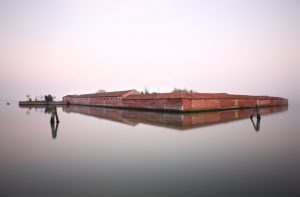This week’s ‘In our time’ programme discussed penicillin and mentioned the role of Norman Heatley and his crucial role in the story.
http://www.bbc.co.uk/programmes/b07dnnkm
Martyn Thomas
This week’s ‘In our time’ programme discussed penicillin and mentioned the role of Norman Heatley and his crucial role in the story.
http://www.bbc.co.uk/programmes/b07dnnkm
Martyn Thomas

Organised by Valentina Pugliano (University of Cambridge) and Nukhet Varlik (Rutgers-Newark University)
Sponsored by The Wellcome Trust; Christ’s College, Cambridge; and the Department of History and Philosophy of Science, University of Cambridge.
This conference aims to offer, for the first time, a comprehensive picture of medicine, environment and health in the eastern Mediterranean and the Near East, ca. 1400-1750.
While a considerable body of scholarship exists on Islamic and Byzantine science and medicine and their influence on the medieval Latin West, the state of medical theory and practice in the following centuries has been comparatively neglected and often spoken of in terms of intellectual stagnation and decline. The conference aims to challenge this narrative and reveal the continued vitality of knowledge making and transfer across the eastern Mediterranean world. Taking as our focus the politically heterogeneous southern Europe and eastern Mediterranean, the Mamluk Kingdom, and the Ottoman Empire, we aim to reconstruct the healthscape of this region in the early modern period, exploring its medical unity and disunity and the human and environmental factors that played a part in it.
For further details regarding the conference and the Call for Papers Click Here
It seems that that rural Suffolk is still the only county where anyone has attempted to make a comprehensive record of the existence of medical practitioners in previous centuries.
Dr David van Zwanenberg’s biographies cover men and women practising medicine in all its forms from the eleventh century until roughly 1900.
To qualify for an entry the person must have practised (or have been apprenticed) in Suffolk during that period.
Dr van Zwanenberg (1922- 1991) started his researches in the early 1970s, but he died before he could finish editing the work. His widow kindly donated his notes to the Suffolk Record Office at Ipswich and the reference number of this handwritten material is q.s.614.
To make the material more accessible, a website was set up in 2001 www.suffolkmedicalbiographies.uk.
Over the years the information on it has been greatly expanded by the editor, Dr Edward Cockayne. DHMSA.
You can look for practitioners using their surname, status, place of practice, gender, or the century in which they lived. More excitingly, using the further details box on its own you can discover all sorts of things. Try tapping in ‘press gang’ ‘inoculation’ or ‘inquests’ just to see.
The forthcoming RSM Library exhibition is entitled: Charcot, Hysteria, & La Salpêtrière
It runs from 3 May 2016 – 23 July 2016 Admission free Open to all
Jean Martin Charcot (1825 – 1893) was appointed physician to the Salpêtrière Hospital in Paris in 1862 and remained working there for the rest of his professional life. This exhibition concentrates on Charcot’s controversial theories regarding hysteria, the patients at the Salpêtrière who were diagnosed with this problematic condition, and its depiction in the visual arts especially photography.
Robert Greenwood, Heritage Officer, The Royal Society of Medicine Library.